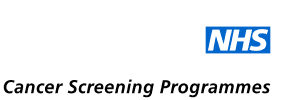Research in Bowel Screening

Research in Bowel Screening |
 |
|
|
CT colonography, colonoscopy or barium enema for diagnosis of colorectal cancer in older symptomatic patients (SIGGAR1)CT colonography (CTC) is a new health technology for whole-colon examination that is disseminating at a rapid rate, based on results suggesting that it is as sensitive as colonoscopy for colonic cancer and large polyps but safer and more acceptable to patients. In the UK the use of CTC as a screening tool is controversial but a systematic review of the literature suggests that it is very sensitive for cancer and may thus have an important role in the NHS for rapid, accurate, acceptable, safe, and cost-effective investigation of symptomatic patients, most of whom are older and less tolerant of colonoscopy. CTC will be compared with the accepted standards of total colonoscopy and barium enema in two parallel, prospective multicentre randomised trials (randomised 2 to 1 in favour of the standard test), with choice of the standard test depending on local factors such as availability and expertise. The detection or exclusion of significant colorectal neoplasia (cancer and/or polyps >1cm) will be determined for each of the three tests, including the number and nature of any additional tests required to confidently exclude cancer and the incidence, nature, and significance of incidental extracolonic lesions detected by CTC. The frequency and nature of procedure-related adverse events will be recorded and psychological morbidity associated with each investigative pathway will be measured using validated questionnaires. Patient specific records of costs and outcomes including influence of test conversion and multiple investigations will be obtained and cost utility models developed to compare management plans with outcome cost. The investigators will also update systematic reviews and use these and the data collected to populate models that summarise the health effects and costs of alternative diagnostic approaches in patients of differing ages, risks, and preferences. Notably, the frequency, relevance, morbidity, and costs associated with incidentally discovered lesions will be assessed. Frequency of follow-up for patients with intermediate grade colorectal adenomasHTA: Frequency of follow-up for patients with intermediate grade colorectal adenomas Beginning in September 2006, this study examined the effect of extending intervals between follow-up colonoscopies in people found to have intermediate adenomas, as defined by the British Society of Gastroenterology guidelines. It is using data from hospitals and from bowel cancer screening initiatives to identify groups of patients with intermediate adenomas. The risk of cancer and severe adenomas will be assessed according to the interval between examinations and the number, size and features of adenomas detected. The study should identify whether all patients with intermediate adenomas require surveillance and whether the intervals are of the appropriate length. It should also demonstrate how many follow-up examinations are needed. Finally, it will determine whether informing patients that they need to have colonoscopy surveillance distresses them or whether they feel reassured as a result. A health economist will analyse the costs to individual patients and to the NHS and compare these with any potential benefits. False positives research studyA research project to investigate the causes of false positive results on faecal occult blood (FOB) testing is now underway. The five year project, funded by Cancer Research UK is a collaboration between the University of Oxford and the newly formed NHS Cancer Screening Programmes' Research Unit, which is based in the University's Cancer Epidemiology Unit. Pilot studies will start early in 2008 and the study will eventually involve over 200,000 screening programme participants, including about 2,500 people with a positive FOB test result who are categorised as normal following a colonoscopy. |
Bowel cancer screening programme index Who does what in the NHS Bowel Cancer Screening Programme? Frequently Asked Questions (FAQs) GP Pack (Information for primary care) Bowel Cancer DVD English Bowel (Colorectal) Screening Pilot Evaluation of the second round of the pilot Research |
||||||||
|
||||||||||